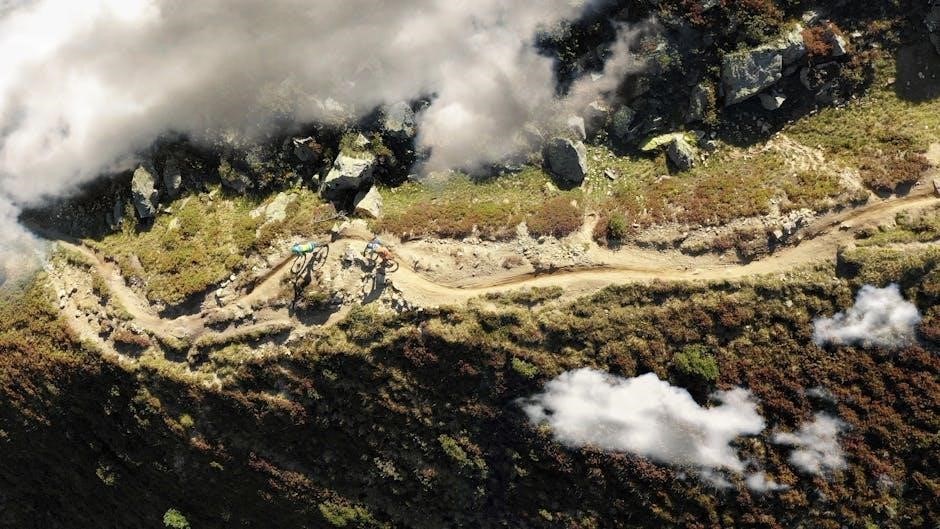Des Moines offers an extensive network of bike trails, with downloadable PDF maps available for Meredith Trail, Neal Smith Trail, and others. These resources provide detailed route information, making it easy to plan your adventure.
Overview of Des Moines Bike Trails Network
Des Moines boasts an extensive network of bike trails, spanning over 80 miles across the metro area. The system includes regional and local trails, offering a mix of paved paths, singletrack dirt trails, and water trails for diverse cycling experiences.
The trails connect urban neighborhoods, parks, and natural landscapes, providing easy access for commuters and recreational riders alike. Key routes like the Meredith Trail and Neal Smith Trail are part of this interconnected system, ensuring seamless exploration of the city and its surroundings.
With downloadable PDF maps and interactive tools, cyclists can plan routes tailored to their preferences, whether cruising through downtown or venturing into nature. The network is continuously expanding, linking more areas and enhancing the city’s reputation as a bike-friendly destination.
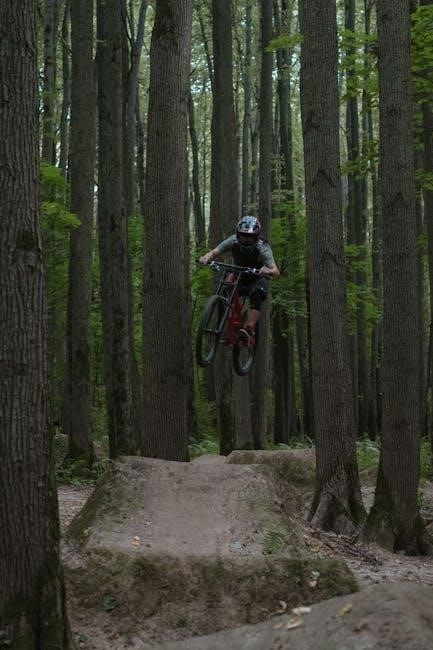
These trails promote physical activity, environmental sustainability, and community engagement, making them a vital part of Des Moines’ infrastructure.
Importance of Bike Trails in Des Moines
The bike trails in Des Moines play a vital role in promoting physical health, environmental sustainability, and community connectivity. They provide accessible paths for cycling, walking, and other outdoor activities, encouraging residents to adopt healthier lifestyles.
By offering alternative transportation routes, the trails reduce traffic congestion and lower carbon emissions, contributing to a cleaner environment; They also serve as hubs for social interaction, fostering a sense of community through events and shared spaces.
Economically, the trails enhance property values and attract visitors, supporting local businesses near the routes. Additionally, they provide opportunities for education and recreation, making Des Moines a more livable and bike-friendly city.
Overall, the bike trails are a cornerstone of Des Moines’ efforts to create a sustainable, connected, and vibrant urban environment.
PDF Resources for Des Moines Bike Trails
Des Moines offers a variety of downloadable PDF resources to help navigate its extensive bike trail network. These resources provide detailed maps, trail descriptions, and essential information for planning your adventure.
The Meredith Trail and Neal Smith Trail are highlighted in specific PDF guides, offering insights into route lengths, surfaces, and scenic highlights. Additionally, the 2024 Regional Trails Map is available for download, featuring over 600 miles of trails across Central Iowa.
These PDFs include interactive maps, customizable layers, and information on trail conditions, parking, and amenities. They are accessible through the Des Moines Parks and Recreation website and partner organizations like the Des Moines Bicycle Collective.
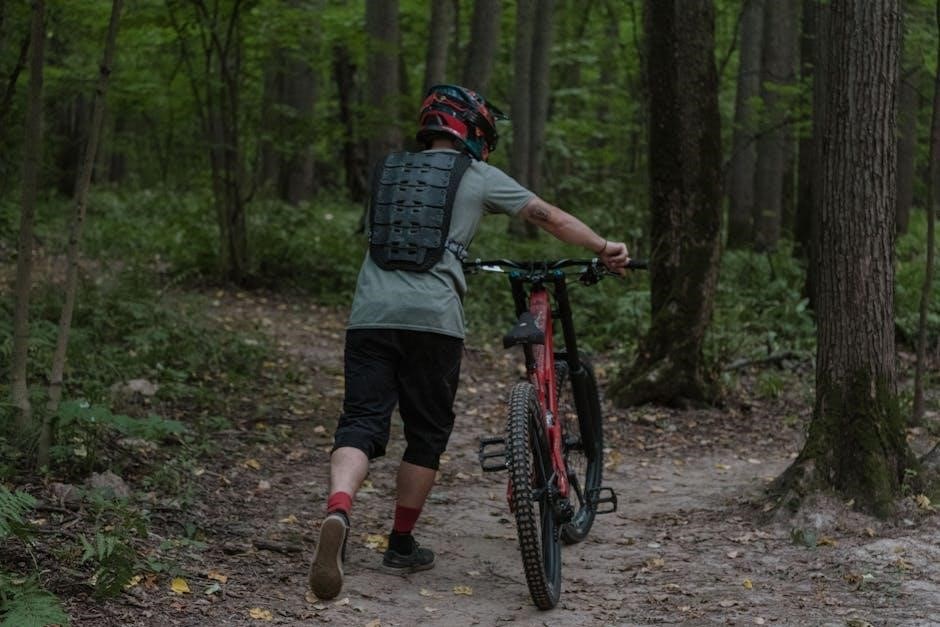
By utilizing these resources, cyclists and outdoor enthusiasts can easily explore Des Moines’ trails, ensuring a well-planned and enjoyable experience. These PDF resources are indispensable for anyone looking to make the most of the city’s bike-friendly infrastructure.

Popular Bike Trails in Des Moines
Explore Des Moines’ scenic bike trails, including the Meredith Trail, Neal Smith Trail, and Clive Greenbelt Trail. These routes offer diverse landscapes, from urban paths to natural escapes, perfect for cyclists of all levels.
Meredith Trail

The Meredith Trail is a popular route in Des Moines, offering a scenic and accessible path for cyclists and pedestrians. Spanning approximately 1.2 miles, it connects downtown Des Moines to nearby neighborhoods, making it a convenient option for both Recreation and commuting. The trail features a mix of paved surfaces and natural areas, providing a serene escape within the urban environment. Its proximity to Gray’s Lake and other local landmarks adds to its appeal, attracting both locals and visitors. The Meredith Trail is part of the city’s larger network of bike trails, which collectively span over 80 miles. Regular maintenance and updates ensure the trail remains safe and enjoyable for users. Downloadable PDF maps of the Meredith Trail are available, offering detailed route information and highlights along the way. This trail is a testament to Des Moines’ commitment to creating accessible outdoor spaces for all to enjoy.
Neal Smith Trail
The Neal Smith Trail is a 24.8-mile paved trail that connects Des Moines to Polk City, offering a mix of urban and natural landscapes. Its surface, composed of concrete and asphalt, ensures a smooth ride for cyclists of all skill levels. The trail is classified as easy, making it an ideal choice for families and casual riders. It winds through scenic areas, including parks and lakes, providing opportunities to enjoy nature while staying active. The trail is managed by the Des Moines Parks and Recreation department and the US Army Corps of Engineers, ensuring regular maintenance and updates. For more information, cyclists can contact Des Moines Parks and Recreation at 515-237-1386 or email DMTripp@dmgov.org. The Neal Smith Trail is a key component of the regional trail network, promoting outdoor recreation and connectivity across Central Iowa.
Clive Greenbelt Trail
The Clive Greenbelt Trail is a popular paved trail that forms part of the Des Moines regional trail network, offering a scenic route for cyclists, joggers, and walkers. Stretching through the city of Clive, the trail connects to other major trails, such as the Meredith Trail, creating a seamless experience for outdoor enthusiasts. Its paved surface ensures accessibility for both recreational and competitive cyclists. The trail features parking areas, restrooms, and water fountains, making it a convenient choice for families and long-distance riders. Clive Greenbelt Trail is known for its well-maintained paths and scenic views, providing a peaceful escape from urban life while remaining close to local amenities. Cyclists can enjoy the trail’s gentle terrain, making it suitable for all skill levels. Updates and maintenance information are available through the Des Moines Parks and Recreation department, ensuring a safe and enjoyable experience for all users. The Clive Greenbelt Trail is a must-visit for anyone exploring Des Moines’ bike trail system.

Types of Bike Trails in Des Moines
Des Moines features diverse bike trails, including paved paths for road bikes, singletrack dirt trails for mountain biking, and scenic water trails along rivers, offering options for all cycling preferences and skill levels.
Paved Trails
Des Moines boasts an extensive network of paved bike trails, ideal for road bikes and family-friendly rides. These trails, such as the Meredith Trail and Neal Smith Trail, are surfaced with concrete or asphalt, ensuring smooth and accessible routes for cyclists of all skill levels. Many of these trails are part of the city’s larger network, connecting parks, neighborhoods, and downtown areas. They often feature amenities like restrooms, water fountains, and parking lots, making them convenient for longer rides. The Meredith Trail, for instance, offers a scenic route along the Des Moines River, while the Neal Smith Trail stretches over 24 miles, connecting Des Moines to nearby Polk City. These paved trails are well-maintained and popular among both locals and visitors, providing a safe and enjoyable environment for cycling.
Singletrack Dirt Trails
Des Moines features an impressive network of singletrack dirt trails, offering exciting opportunities for mountain biking, running, and hiking. These trails are meticulously maintained to ensure sustainability and accessibility. The city boasts over 18 miles of shared singletrack dirt trails, nestled within urban forests, providing a unique blend of natural scenery and challenging terrain. Trails like the Center Trails system offer approximately 13 miles of winding paths, ranging from easy to moderately challenging routes. These trails are popular among outdoor enthusiasts, with amenities such as air pumps and bike maintenance tool stations available at key locations, such as the Ashworth Pool parking lot. The singletrack dirt trails are a testament to Des Moines’ commitment to outdoor recreation, offering a dynamic and immersive experience for users. These trails are also part of larger efforts to expand and connect the regional trail network, enhancing accessibility and enjoyment for all skill levels.
Water Trails
Des Moines’ water trails offer a unique way to explore the city’s scenic waterways by kayak, canoe, or paddleboard. These trails wind through serene rivers and lakes, providing picturesque views and opportunities for wildlife observation. The Raccoon River and Des Moines River are central to the water trail network, with designated access points and parking areas for convenience. Maps and guides, available in PDF formats, detail the best routes, safety tips, and nearby amenities. These water trails are part of Des Moines’ broader effort to promote outdoor recreation and connect residents with nature. They complement the city’s extensive bike trails, creating a comprehensive network for diverse outdoor activities. Whether paddling leisurely or seeking adventure, Des Moines’ water trails provide an enjoyable experience for all skill levels and interests.
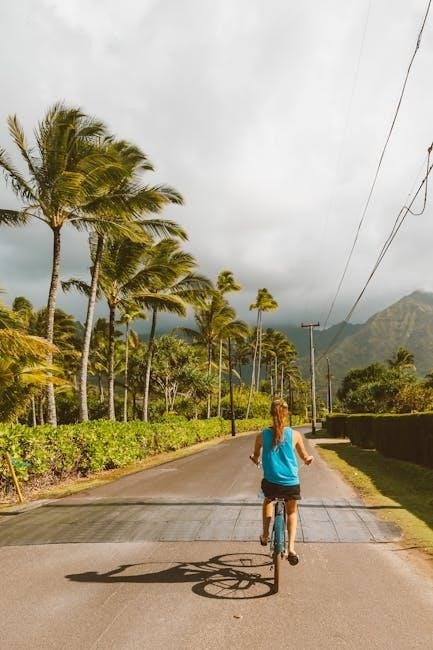
Resources for Planning Your Bike Trail Adventure
Downloadable PDF maps and interactive tools provide detailed route information, while bike maintenance stations ensure your bike is trail-ready. Text DSMTRAILS to 84483 for real-time updates, enhancing your Des Moines bike trail experience.
Interactive Maps
Des Moines offers a comprehensive interactive map for bike trails, allowing users to explore over 600 miles of paths. This tool features multiple layers, including regional trails, local trails, and nature trails. Riders can customize their view, measure distances, and even share maps via email or social media. The map also highlights nearby amenities like restaurants, parks, and bike maintenance stations. For those seeking detailed route planning, the map enables users to print PDF versions, ensuring easy access to trail information. Additionally, the interactive platform provides real-time updates, helping cyclists stay informed about trail conditions and closures. Whether you’re a casual rider or an avid explorer, these interactive maps are an essential resource for navigating Des Moines’ extensive bike trail network with precision and confidence.
Downloadable PDF Maps
Des Moines provides downloadable PDF maps for its bike trails, offering a convenient way to plan adventures offline. These maps detail routes like Meredith Trail, Neal Smith Trail, and others, with mile markers, trailheads, and nearby amenities. Available on the Des Moines Parks and Recreation website, they complement interactive tools and are ideal for cyclists preferring physical copies; Hard copies are also available at local bike shops and community centers, ensuring accessibility for all riders.
Bike Maintenance Stations
Des Moines has installed bike maintenance stations along its trails to support cyclists. These stations are equipped with tools for basic repairs, such as tire inflation, brake adjustments, and chain fixes. Located at key points like the Ashworth Pool parking lot, they enhance trail accessibility and safety. The stations are part of the city’s effort to promote cycling as a sustainable and convenient transportation option, aligning with the Des Moines Bicycle and Trail Master Plan. Cyclists can use these stations to ensure their bikes are in good condition before continuing their journey. This initiative reflects the city’s commitment to creating a bike-friendly environment, encouraging more residents and visitors to explore the extensive network of trails available in Des Moines.
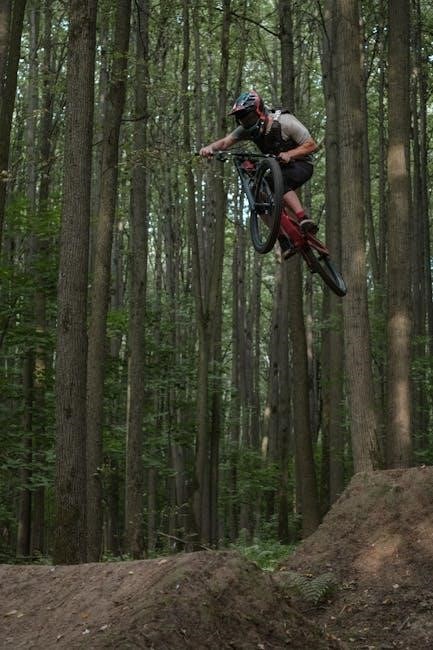
Local Initiatives and Events
- Des Moines hosts community bike events like giveaways and rodeos;
- The Central Iowa Bicycle-Pedestrian Roundtable promotes trail development.
- Local initiatives focus on enhancing trail connectivity and safety.
Des Moines Bicycle and Trail Master Plan
The Des Moines Bicycle and Trail Master Plan outlines a comprehensive vision for enhancing the city’s bikeway network, ensuring accessibility for all residents. This long-term strategy aims to create a seamless connection between neighborhoods, parks, and local businesses, fostering a more sustainable and active community. The plan emphasizes the development of multi-use trails, singletrack paths, and on-street bikeways, catering to both recreational and commuter cyclists.
Funding for the plan is secured through partnerships with local organizations and federal grants, ensuring the implementation of key projects like the High Trestle Trail and the Gay Lea Wilson Trail. These initiatives not only improve infrastructure but also promote environmental conservation and economic growth. The master plan balances trail expansion with community needs, prioritizing equity and accessibility. By connecting trails across the metro, it encourages residents to explore the city’s natural beauty while reducing reliance on vehicles. This forward-thinking approach positions Des Moines as a leader in sustainable urban planning and trail development.
Bike-Pedestrian Roundtable
The Central Iowa Bicycle-Pedestrian Roundtable, established in 2004, serves as a collaborative platform to advance bicycle and pedestrian infrastructure in Des Moines and surrounding areas. This initiative brings together local governments, advocacy groups, and stakeholders to coordinate efforts, ensuring cohesive development of trails and pathways. The Roundtable’s efforts are instrumental in addressing gaps in the existing network and promoting safe, accessible routes for cyclists and walkers.
Key achievements include the expansion of multi-use trails like the Meredith Trail and Neal Smith Trail, as well as the integration of on-street bikeways. The Roundtable also organizes community events, such as bike rodeos and trail cleanups, to engage residents and foster a sense of ownership. By prioritizing equity and sustainability, the initiative ensures that all communities benefit from improved connectivity. Regular updates and resources, including downloadable PDF maps, are available to keep the public informed. This collaborative approach has made Central Iowa a model for balanced transportation planning and trail development.
Community Bike Events
Community bike events in Des Moines play a vital role in fostering a cycling culture and promoting the use of local trails. These events, such as bike giveaways, group rides, and family-friendly bike rodeos, engage residents of all ages and skill levels. They serve as platforms to educate cyclists about trail safety, maintenance, and navigation while encouraging physical activity and environmental sustainability.
Annual events like the “Bike to Run Transition” and trail cleanups bring the community together, highlighting the importance of shared spaces. Many events are organized by local groups, such as the Des Moines Bicycle Collective, and often include resources like downloadable trail maps and maintenance tips. These gatherings not only celebrate cycling but also strengthen connections between residents and their surroundings, making Des Moines a more bike-friendly city.
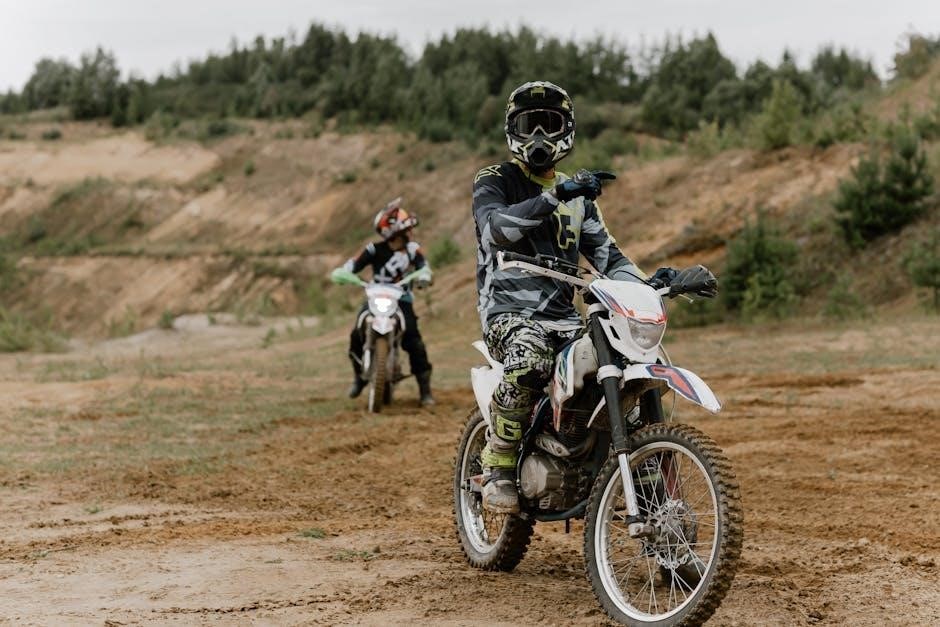
Future Developments and Expansions
Des Moines is expanding its trail network with new projects, including connections to Clive and West Des Moines. Funding and partnerships are key to enhancing accessibility and creating a seamless metro-wide trail system.
Upcoming Trail Projects
Des Moines is actively developing new trail segments to expand its network. These projects aim to connect existing trails, enhancing accessibility and creating a more cohesive system. Key initiatives include extending the Meredith Trail and linking Clive and West Des Moines, fostering better connectivity for cyclists and pedestrians. Funding and partnerships are crucial, with collaborations between local governments and organizations like the Des Moines Bicycle Collective driving progress. These efforts ensure that future trails meet the growing demand for sustainable, multi-use pathways, promoting outdoor recreation and alternative transportation. Regular updates on trail developments are available through the Des Moines Parks and Recreation department, ensuring the community stays informed about new routes and improvements.

Connecting Trails Across the Metro
Des Moines is prioritizing the connectivity of its trail system to create a seamless network across the metro area. Efforts are underway to link existing trails, such as the Meredith Trail and Neal Smith Trail, with future extensions aimed at bridging gaps between cities like Clive and West Des Moines. This initiative will enhance accessibility for cyclists and pedestrians, fostering a more connected community. The goal is to provide uninterrupted pathways that promote exploration and commuting while showcasing the region’s diverse landscapes. By integrating urban and natural environments, these connections will strengthen Des Moines’ reputation as a bike-friendly city. Regular updates and downloadable PDF maps ensure residents and visitors can stay informed about the evolving trail network.
Funding and Partnerships
Funding for Des Moines’ bike trails issecured through a combination of public grants, private donations, and partnerships with local organizations. The Des Moines Bicycle Collective and Polk County Conservation are key collaborators, contributing resources and expertise. Federal funding, such as from the Iowa Department of Transportation, also plays a crucial role. These partnerships ensure trail development remains sustainable and aligned with community needs. By leveraging diverse funding sources, Des Moines can expand its trail network while maintaining high standards of quality and accessibility. This collaborative approach not only supports current projects but also paves the way for future trail expansions. Regular updates on funding progress are available through downloadable PDF resources, ensuring transparency and community engagement.
